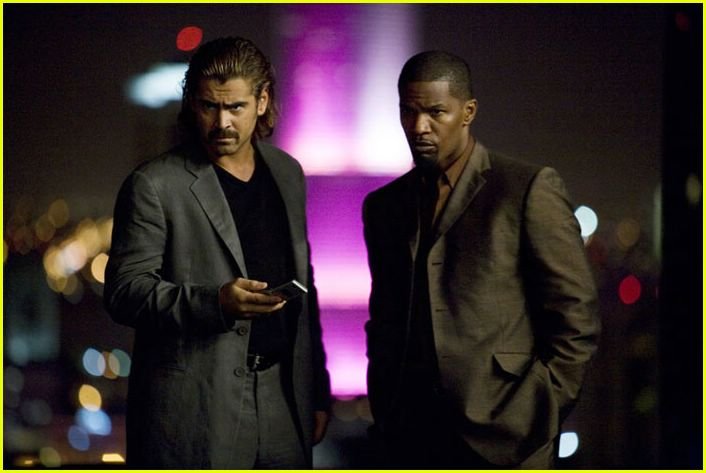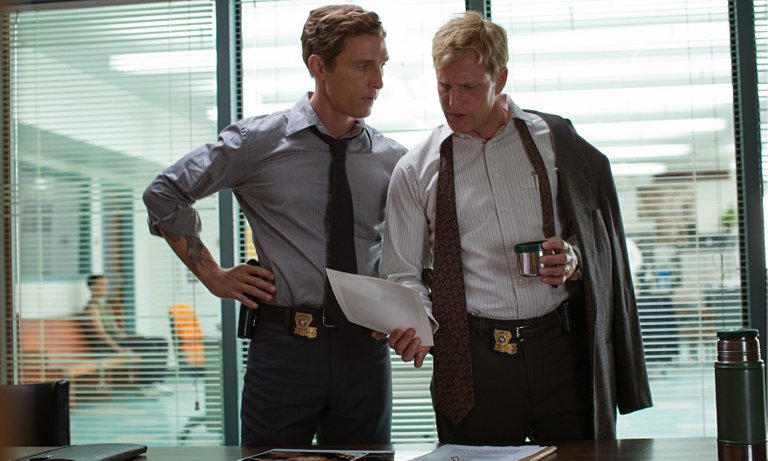
[Disclaimer: Due to my Department's restrictive internal disciplinary policies regarding their personnel's expression of personal opinion, certain details and aspects of my background have been intentionally redacted from this story.]
What is the CSI Effect?
The "CSI Effect" is a term coined relatively recently by the law enforcement community and prosecutors, referring to an unproven phenomenon affecting modern American jurors in which their expectations of the criminal justice system have become unrealistically high, specifically as a result of watching certain television shows (such as CSI) depicting criminal investigations. Advocates of this theory contend that these television shows depict crime scenes teeming with tons of DNA evidence, fingerprints, and carpet microfibers, in a way that contradicts the real-life availability of these types of evidence. Put simply, the shows make it look way to easy!
CSI v.s. Real Life
On television, these detectives receive a case, identify a suspect, arrest the suspect, and bring him to justice, all within their one hour time-slot. There is ALWAYS some sort of DNA or biological evidence available, and they have access to cutting edge technology that real life law enforcement professionals can only dream about. Not to mention their stylish, brand new cars that they roll up to the crime scenes in; very often a high end sports car or a huge, road hogging Hummer. Actual Crime Scene Investigators, at least on the NYPD, arrive in either a large marked Department van, or Department issued unmarked vehicles, usually a Chevy, Ford Fusion, or something of that sort (definitely not as sexy as TV, but they get the job done). They're not dressed in Brioni suits or Crockett and Jones leather shoes. In actuality, a CSI investigator would most likely wear an NYPD polo shirt and baseball-style cap, or, if he/she is wearing a suit, it is wrinkly, from Macy's, probably unwashed, and will appear to have been sitting in a locker for a few weeks (because it most likely was). It should also be noted that real life CSI investigators' ONLY function is to collect and process evidence; they almost never interview witnesses or suspects, and they absolutely do no make arrests.

Super slick, but not realistic at all.
V.S.

Although this screenshot is from HBO's True Detective (another show), I feel that their portrayal of actual "precinct-life" is far more realistic than "Miami Vice" or "CSI". Note the loosened ties and the detectives' generally disheveled appearances. Also, for a more realistic approach, check out HBO's "The Wire".
Television detectives can also process a crime scene in 24 hours or less, using portable, DNA-analyzation technology. This is a HUGE misrepresentation. The NYPD still uses typewriters (no joke) and fax machines, and it generally takes their lab a few weeks, or more, to process DNA evidence. Furthermore, NYPD generally uses long obsolete desktop computers (usually Dell), running hardware from at least 4 years prior to when they are "newly" installed. For example, my desktop in the office is approximately 5 years old and was still using Windows XP until about a year ago. More on the technology (or lack thereof) in future articles.
Let's take a moment to talk about fingerprints. In the shows, fingerprints and "partial prints" can be lifted anywhere, anytime, and off of any object. However, it is simply not that easy in actuality. In order for investigators to properly "lift prints" from a crime scene, the substrate (or surface) needs to be clean; it also helps immensely if the surface itself is smooth, such as a window or table. I've been to many crime scenes, and I can attest to how difficult it is to actually pull prints from even the cleanest of substrates. In short, fingerprints are, more often than not, unavailable as evidence at a typical crime scene. To be clear, partial prints are an actual form of evidence, but are generally considered to be inferior to "full" prints for obvious reasons. And, interestingly, NYPD uses "Evidence Collection Teams" (ECT for short) to dust for fingerprints, and they can be called to the scene of ANY crime (violent or not). Alternatively, CSI is most often called in for violent, serious crimes, such as murder, rape, felonious assault or armed robbery. Therefore, on NYPD anyway, CSI does not usually dust for fingerprints.
The average juror has no knowledge or experience with crime scenes, fingerprints, or processing evidence. And, most times, their only knowledge regarding the above is taken from shows like CSI or anecdotal stories, at best. So, is the "CSI effect" a real thing? I think the answer is yes and no. Because juries are notoriously unpredictable in their findings, it is also difficult to theorize about the reasoning behind their decision making. Furthermore, although some jurors may hold predefined beliefs about crime scenes and evidence, it is arguably the prosecutor's job, regardless of the jurors' biases, to overcome said biases and present the evidence in a way that strengthens his or her case. If the prosecutor fails to do so; well, then I'd say that he or she probably deserves to lose in court.
I've attached an informational graphic from "Forensicscience.net" to the bottom of this article with some interesting facts on it. Please peruse and enjoy!
What do you think?
The author of this article is an active New York City Police Officer, currently serving the City in an investigative capacity.

Yea. My house got completely looted, perp(s) broke in through a window, turned it upside down took everything of value. Lot's of this happening and cops think it is organized so the local CSI team shows up. Spend a couple hours dusting and doing their thing. Found nothing. Zero, zilch, nada. It was very eye opening. Basically if you wear gloves, have short hair/wear a hat and don't bleed/urinate/spit there isn't much chance you're going to get caught via CSI type evidence. The CSI team said the same thing - TV CSI is ridiculous.
I learned that the best way to catch/prevent bad guys is to have cameras. So we now have lots of cameras. No more bad guys.
Sorry to hear about that. Yes, it usually is very eye-opening. Cameras are your best defense as a home/business owner. Not even that expensive anymore, you can just get one that activates via motion censor and uploads the content right to your phone. Thanks for commenting!
You wrote a very interesting article, loved to read it. Interesting how the TV shows are so different than in reality. I hope to see more content like this coming.
Thanks, more to come!
I think I like the infographic at the end the best. In your article you stated that it usually takes them less than 24 hours to solve a case and I was going to be a smartass and say it's done in less than the 1 hour timeslot of the show ;), but then the graphic shows something being done in less than 33 seconds. This is a real eye opener as to what actually happens in the real world.
Thanks for the feedback! I thought the graphic was cool too, said a whole lot without having to be explained :-)
One of the CSI type shows had this doctor who kept going over 8 cases, just in case he figures one of them out. (because there is something he missed, he's sure of it)
If it was real world, I am sure his commander would walk in, ask him what he is doing, then point to the cart full of cases that haven't even been looked at, give a scowl and walk out.
Ha! You hit the nail on the head! Cases keep coming in, whether the investigator likes it or not. If an investigator gets behind in their case load, their C.O. (Commanding Officer) would absolutely take notice and reprimand them accordingly. But, if one were so inclined, I guess you can take your work home with you too :-)
Crazy, I never would have thought of that happening but it seems to make sense. I agree with you that it is also dependent on the prosecutors and how they are able to portray the evidence, but as a normal person I really have no idea what the reality of DNA evidence processing, crime scene investigation, or availability of evidence is. Thanks for sharing @ryanjk8, always love to read your posts!
Thanks @dexter-k!